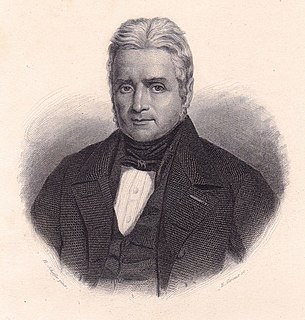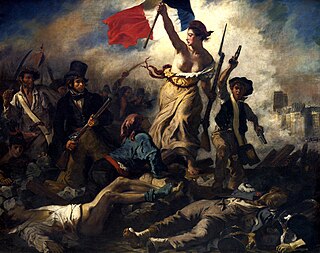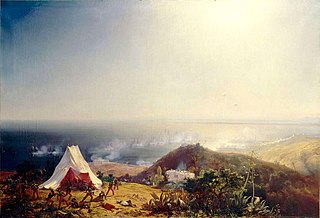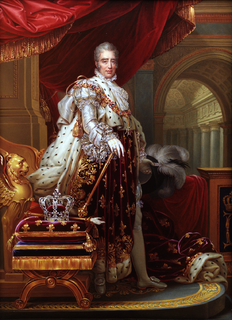The Whigs were a political faction and then a political party in the parliaments of England, Scotland, Great Britain, Ireland and the United Kingdom. Between the 1680s and 1850s, they contested power with their rivals, the Tories. The Whigs' origin lay in constitutional monarchism and opposition to absolute monarchy. The Whigs played a central role in the Glorious Revolution of 1688 and were the standing enemies of the Stuart kings and pretenders, who were Roman Catholic. The Whigs took full control of the government in 1715 and remained totally dominant until King George III, coming to the throne in 1760, allowed Tories back in. The Whig Supremacy (1715–1760) was enabled by the Hanoverian succession of George I in 1714 and the failed Jacobite rising of 1715 by Tory rebels. The Whigs thoroughly purged the Tories from all major positions in government, the army, the Church of England, the legal profession and local offices. The Party's hold on power was so strong and durable, historians call the period from roughly 1714 to 1783 the age of the Whig Oligarchy. The first great leader of the Whigs was Robert Walpole, who maintained control of the government through the period 1721–1742 and whose protégé Henry Pelham led from 1743 to 1754.

The Bourbon Restoration was the period of French history following the first fall of Napoleon in 1814, and his final defeat in the Hundred Days in 1815, until the July Revolution of 1830. The brothers of the executed Louis XVI came to power, and reigned in highly conservative fashion; exiled supporters of the monarchy returned to France. They were nonetheless unable to reverse most of the changes made by the French Revolution and Napoleon. At the Congress of Vienna they were treated respectfully, but had to give up nearly all the territorial gains made since 1789.

Louis Philippe I was King of the French from 1830 to 1848. His father Louis Philippe II, Duke of Orléans had taken the name "Philippe Égalité" because he initially supported the French Revolution. However, following the deposition and execution of his cousin King Louis XVI, Louis Philippe fled the country. His father denounced his actions and voted for his death, but was imprisoned and executed that same year. Louis Philippe spent the next 21 years in exile before returning during the Bourbon Restoration. He was proclaimed king in 1830 after his cousin Charles X was forced to abdicate by the July Revolution. The reign of Louis Philippe is known as the July Monarchy and was dominated by wealthy industrialists and bankers. He followed conservative policies, especially under the influence of French statesman François Guizot during the period 1840–48. He also promoted friendship with Britain and sponsored colonial expansion, notably the French conquest of Algeria. His popularity faded as economic conditions in France deteriorated in 1847, and he was forced to abdicate after the outbreak of the French Revolution of 1848. He lived out his life in exile in the United Kingdom. His supporters were known as Orléanists, as opposed to Legitimists who supported the main line of the House of Bourbon.

Camille Hyacinthe Odilon Barrot was a French politician who was briefly head of the council of ministers under Prince Louis Napoleon in 1848–49.

Henri, Count of Chambord was disputedly King of France from 2 to 9 August 1830 as Henry V, although he was never officially proclaimed as such. Afterwards, he was the Legitimist pretender to the throne of France from 1844 to 1883. He was nearly received as king in 1871 and 1873.

Jacques Laffitte was a leading French banker, governor of the Bank of France (1814–1820) and liberal member of the Chamber of Deputies during the Bourbon Restoration and July Monarchy. He was an important figure in the development of new banking techniques during the early stages of industrialization in France. In politics, he played a decisive role during the Revolution of 1830 that brought Louis-Philippe, the duc d'Orléans, to the throne, replacing the unpopular Bourbon king Charles X. Laffitte was named president of the new Citizen King's Council of Ministers and Minister of Finances. After a brief ministry of 131 days, his "Party of Movement" gave way before the "Party of Order" led by the banker Casimir-Pierre Perier. Laffitte left office discredited politically and financially ruined. He rebounded financially in 1836 with his creation of the Caisse Générale du Commerce et de l'Industrie, a forerunner of French investment banks of the second half of the 19th century such as the Crédit Mobilier (1852). The Caisse Générale did not survive the financial crisis caused by the Revolution of 1848.

The French Revolution of 1830, also known as the July Revolution, Second French Revolution or Trois Glorieuses in French, led to the overthrow of King Charles X, the French Bourbon monarch, and the ascent of his cousin Louis Philippe, Duke of Orléans, who himself, after 18 precarious years on the throne, would be overthrown in 1848. It marked the shift from one constitutional monarchy, under the restored House of Bourbon, to another, the July Monarchy; the transition of power from the House of Bourbon to its cadet branch, the House of Orléans; and the replacement of the principle of hereditary right by popular sovereignty. Supporters of the Bourbon would be called Legitimists, and supporters of Louis Philippe Orléanists.

The Legitimists are royalists who adhere to the rights of dynastic succession to the French crown of the descendants of the eldest branch of the Bourbon dynasty, which was overthrown in the 1830 July Revolution. They reject the claim of the July Monarchy of 1830–1848 which placed Louis Philippe, Duke of Orléans head of the Orléans cadet branch of the Bourbon dynasty on the throne until he too was dethroned and driven with his family into exile.

The July Monarchy was a liberal constitutional monarchy in France under Louis Philippe I, starting with the July Revolution of 1830 and ending with the Revolution of 1848. It marks the end of the Bourbon Restoration (1814–1830). It began with the overthrow of the conservative government of Charles X, the last king of the House of Bourbon.
An Ultra-royalist was a French political label used from 1815 to 1830 under the Bourbon Restoration. An Ultra was usually a member of the nobility of high society who strongly supported the Bourbon monarchy, traditional hierarchy between classes and census suffrage against popular will and the interests of the bourgeoisie and their liberal and democratic tendencies.
July Ordinances, also known as the Four Ordinances of Saint-Cloud, were a series of decrees set forth by Charles X and Jules Armand de Polignac, the chief minister, in July 1830.
Aide-toi, le ciel t'aidera, simply called Aide-toi, was a French society that aimed to stir up the electorate against the government during the Bourbon Restoration (1814–1830).

Louis Antoine of France, Duke of Angoulême was the eldest son of Charles X of France and the last Dauphin of France from 1824 to 1830. He was technically King of France and Navarre for less than 20 minutes before he himself abdicated, due to his father's abdication during the July Revolution in 1830. He never reigned over the country, but after his father's death in 1836, he was the legitimist pretender as Louis XIX.

The Charter of 1830 instigated the July Monarchy in France. It was considered a compromise between constitutionalists and republicans.

The 1830 general election organized the first legislature of the July Monarchy but was meant to organize the sixth legislature of the Bourbon Restoration. The election was held on 5 and 13 July, with the second round held on 19 July.

The Invasion of Algiers in 1830 was a large-scale military operation by which the Kingdom of France, ruled by Charles X, invaded and conquered the Ottoman Regency of Algiers. Algiers had been a province of the Ottoman Empire since the Capture of Algiers in 1529 by Hayreddin Barbarossa.

Guillaume-Isidore Baron de Montbel was a French politician who was a mayor of Toulouse, a deputy and a minister in the French government during the last year of the Bourbon Restoration. He was an ardent royalist and opposed to the freedom of press. After the July Revolution of 1830 he was tried in absentia and sentenced to civil death. He was later pardoned and returned to France.

















